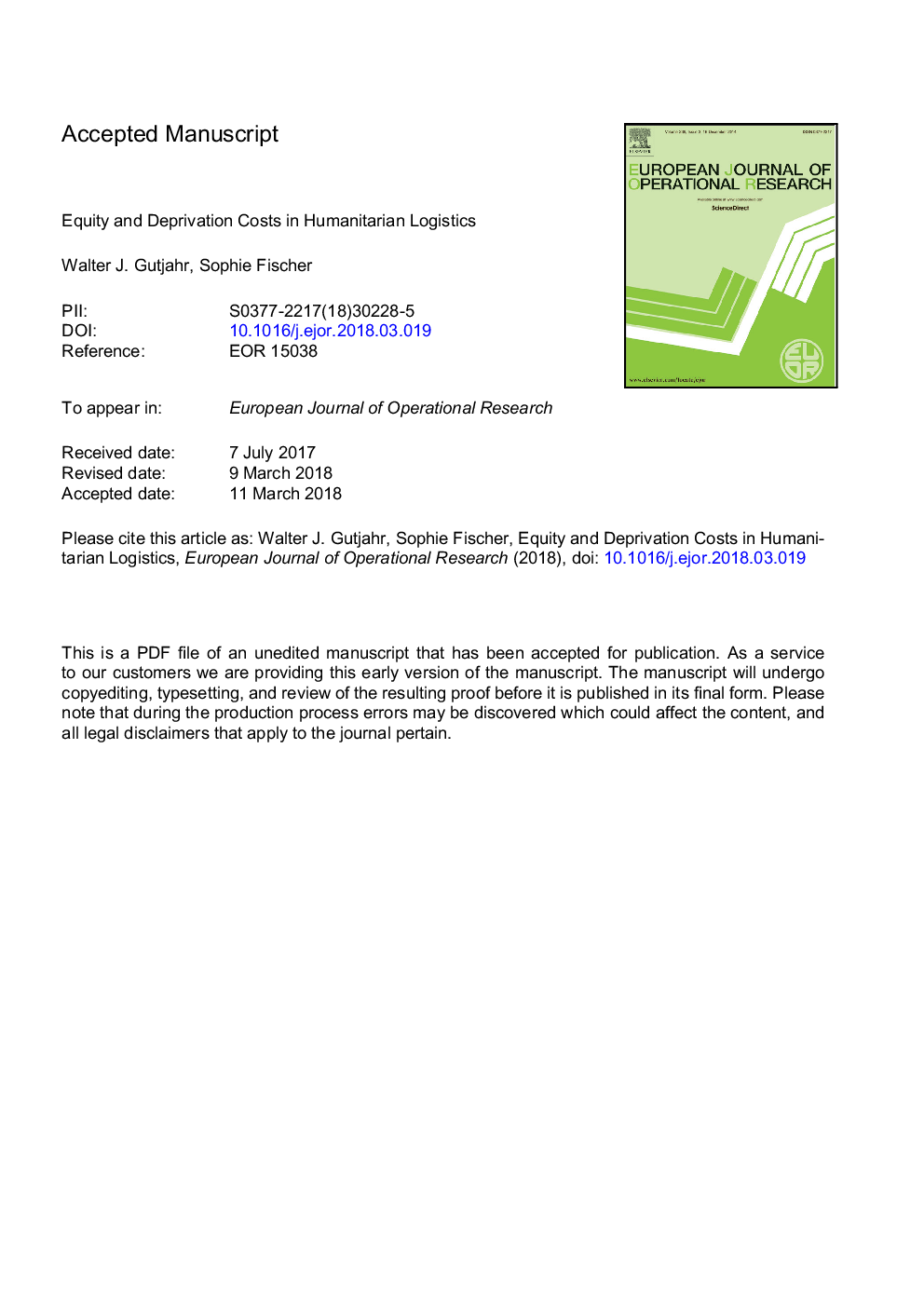| Article ID | Journal | Published Year | Pages | File Type |
|---|---|---|---|---|
| 6894633 | European Journal of Operational Research | 2018 | 31 Pages |
Abstract
Recently, essential progress in quantitative modelling of humanitarian operations has been made through the introduction of the deprivation cost concept by HolguÃn-Veras et al. The incorporation of this concept within the overall objective of minimizing the so-called “social costs” (logistics costs plus deprivation costs) promises to unify the objective functions of optimization models for humanitarian logistics applications. Although the deprivation cost concept is able to cover the majority of all those optimization criteria previously used in the literature in this field that are not yet covered by logistics costs, the question whether it also addresses the criterion of equity (fairness) remains open. In the first part of our work, we show by analytical results that minimization of total deprivation cost under a fixed given budget can lead to arbitrarily unfair solutions. For this reason, we propose to extend the deprivation cost objective by a term proportional to the well-known Gini inequity index. A computational solution procedure for a corresponding logistics model is presented, and its merits compared to the utilitarian version are demonstrated at an illustration case with data from the Nepal earthquake 2015. In particular, it is shown that practically irrelevant final reductions of average deprivation costs result in substantial increases of inequity, or vice versa, at a low “price of fairness”, dramatic reductions of the Gini inequity index can be achieved.
Related Topics
Physical Sciences and Engineering
Computer Science
Computer Science (General)
Authors
Walter J. Gutjahr, Sophie Fischer,
